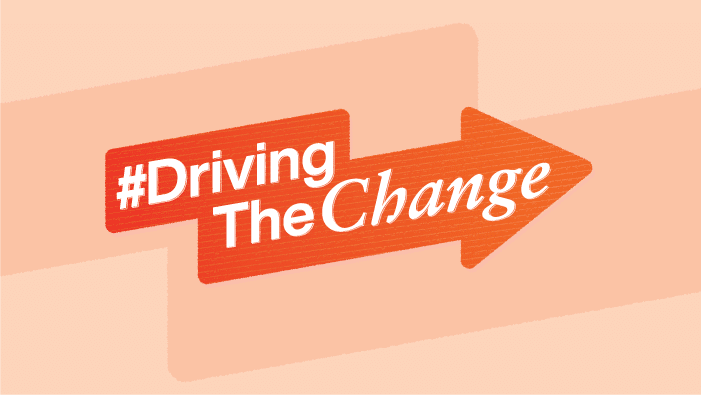Listen to this blog
Having the appropriate set of professional abilities is essential for anyone looking for job opportunities in the present-day competitive workforce. Employers prioritize individuals with employability skills in addition to appropriate qualifications. These talents cover a wide variety of competencies, including management, collaboration, interpersonal skills, and problem-solving. Numerous educational institutions and organizations have been implementing placement training programs to improve their students’ job prospects.
Also read: The role of career guidance in helping students achieve their professional goals.
Understanding employability skills
The abilities that allow people to get hired, stay in, and advance in the job are known as employability skills. They are necessary for finding employment as well as succeeding in a professional environment. While technical skills are exclusive to certain professions or businesses, employability skills are applicable to a variety of industries. Since they place a greater emphasis on personality traits than on technical knowledge.
The importance of employability skills
The development of an individual’s employability skills is essential for their professional success. They help with professional growth and work happiness in addition to improving one’s chances of landing a job. Employers want potential employees who are adaptable to changing situations, work effectively in teams, communicate clearly, and think analytically in today’s quickly changing work environment. Individuals who possess these abilities can succeed in their positions and favorably impact the performance of the organization. Additionally, employability skills are not restricted to a particular profession or sector, which makes people more flexible and versatile throughout their careers.
Also read: How online learning bridges the skills gap and improves placement outcomes
Placement training and employability skills
Placement training encompasses the activities and programs created to improve students’ and job seekers’ employability. The purpose of these programs is often to close the knowledge gap that exists between academic disciplines and the demands of the workplace. They are typically conducted by colleges and universities, professional education facilities, or organizations. Placement training is focused on giving people the skills, knowledge, and perspectives they need to be successful in the job.
Skill development: Programs for placement training provide participants with the chance to improve a variety of employability skills. Participants may improve the way they communicate, teamwork, management, problem-solving, and time-management skills via engaging seminars, hands-on activities, role plays, and simulations. Through exposure to real-world situations and challenges, individuals are able to obtain practical experience and form a professional perspective.
Industry exposure: Programs for placement training frequently incorporate industry exposure components, such as internships, site visits, and guest lectures by industry professionals. People gain important insights about the working environment, marketplace standards, and current developments as a result of this exposure. Participants may better connect their expertise and experience with industry-specific criteria and practice, increasing their perceived value to employers.
Networking opportunities: Programs for placement training encourage networking among students, instructors, and business people. A crucial part of professional growth is networking since it enables people to build relationships, learn about industries, and look into employment prospects. Through placement training, people may widen their professional networks, which can greatly improve their chances of finding employment.
Confidence building: The growth of confidence is one of the key benefits of placement training. People gain confidence in their skills when they participate in a variety of activities and overcome challenges. Employers find them more enticing as a result of their increased confidence, which is shown in their job interviews, interactions in the workplace, and general professional demeanor.
Personal branding: Personal branding and professional conduct are frequently stressed in placement training Programs. Participants gain knowledge on how to polish their resumes, write compelling personal statements, and carry themselves with assurance during interviews. These abilities are essential for impressing employers and distinguishing yourself from the other applicants.
Realizing career aspirations: Placement training enables people to match their skill set and professional goals. Participants build ways to attain their professional objectives and get clarity about their aspirations through career counseling and coaching. Programs for placement training provide people with the tools and assistance they need to explore several career options, identify their strengths and limitations, and make decisions concerning their future.
Also read: From student to professional: A guide to placement after an online course
The impact of placement training on employability
Let’s examine how placement training impacts employability:
Enhanced employability: The improvement of employability is the primary benefit of placement training. Comprehensive placement training Programs give participants better preparation for adjusting to meet employers’ expectations. They are well-rounded professionals since they have a variety of employability skills in addition to the requisite technical knowledge. As a result, even in extremely competitive labor marketplaces, their chances of finding employment rise significantly.
Competitive advantage: Placement training provides individuals with a competitive advantage over their contemporaries. Participants are viewed as more valuable assets by prospective employers since they possess a variety of employability skills. They stand out throughout hiring procedures by showcasing their capacity to significantly advance organizational objectives. People may stand out and position themselves as suitable prospects for work by having a solid foundation of employability skills.
Smooth transition to the workplace: The change from a classroom setting to a professional environment is one of the difficulties new graduates and prospective employees confront. Courses for placement training assist people in navigating this shift by equipping them with the required abilities and information. Participants are more equipped to manage professional expectations, fit into organizational cultures, and interact and cooperate with coworkers in productive ways. This seamless transition leads to higher productivity and a quicker move into the workforce.
Long-term career success: Programs for placement training not only emphasize short-term employability but also support long-term professional success. These Programs equip participants with a solid foundation of employability skills, laying the groundwork for future professional progress. The abilities gained via placement training are transportable and useful at all stages of a person’s career. People are able to adjust to shifting work functions, industry standards, and technology developments, assuring their long-term adaptability and professional promotion.
Also read: The role of placement support services in bridging the job readiness gap.
Conclusion
By helping students and job seekers to develop their interview skills, creating compelling resumes and online profiles, and providing expert career guidance, placement training programs play a crucial part in improving their employability. Beyond securing a job right away, placement training has an influence on long-term professional performance.. People present themselves as appealing prospects for employers as they continue to make investments in their employability skills with placement training, boosting their chances of landing lucrative and rewarding professions. Online Manipal offers various placement assistance services such as employability assessments, skill-enhancement training, virtual placement drives and career counseling sessions to prepare students for the professional world and increase their employability. Enroll in an online course through Online Manipal and carve your path to success in today’s dynamic job market.
Also read: Importance of career readiness in online education: How placement drives can help.
Prepare for your next career milestone with us















